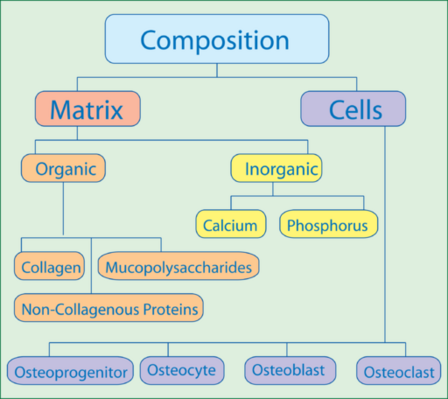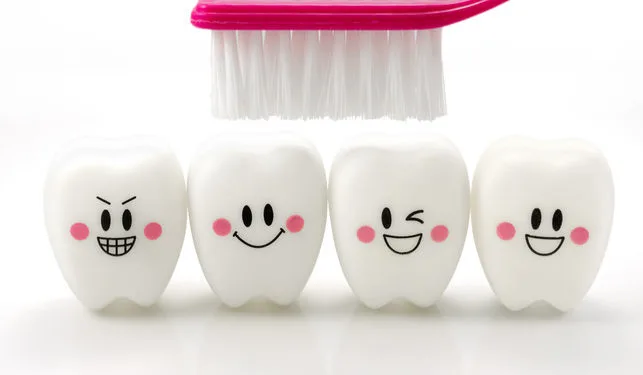Bone and Tooth Health Essentials: Tips for Strong and Healthy Skeletal System
Table of Contents
- Introduction
- The Importance of Bone and Tooth Health
- Understanding Bone Composition and Structure
- 3.1 Bones: The Framework of Our Body
- 3.2 Dental Structure: Protecting Your Teeth
- Factors Affecting Bone and Tooth Health
- 4.1 Nutrition: The Foundation for Strong Bones and Teeth
- 4.2 Physical Activity: Building Bone Density
- 4.3 Lifestyle Habits: Impact on Bone and Tooth Health
- Tips for Maintaining Strong Bones and Teeth
- 5.1 Calcium and Vitamin D: Essential Nutrients for Bone Health
- 5.2 Magnesium: Supporting Bone Density
- 5.3 Phosphorus: Strengthening Tooth Enamel
- 5.4 Fluoride: Guarding Against Tooth Decay
- 5.5 Regular Dental Care: Preventative Measures for Healthy Teeth
- 5.6 Weight-Bearing Exercises: Enhancing Bone Strength
- The Role of Hormones in Bone Health
- 6.1 Estrogen and Testosterone: Gender Differences in Bone Density
- 6.2 Thyroid Hormones: Regulating Bone Metabolism
- Lifestyle Practices to Avoid
- 7.1 Tobacco and Bone Health: The Connection
- 7.2 Excessive Alcohol Consumption: Impact on Bones and Teeth
- Bone and Tooth Health Across Different Life Stages
- 8.1 Childhood and Adolescence: Building Strong Foundations
- 8.2 Adulthood: Maintaining Bone Mass
- 8.3 Senior Years: Preventing Osteoporosis and Tooth Loss
- Seeking Professional Guidance
- Conclusion
- FAQs
1.Introduction
Our bones and teeth are crucial components of the human body, providing structure, support, and protection. Maintaining strong bones and teeth is essential for overall health and well-being throughout life. In this article, we will explore the significance of bone and tooth health, the factors influencing it, and practical tips to ensure a robust skeletal system.
2. The Importance of Bone and Tooth Health
Bone and tooth health play a vital role in our daily activities. They allow us to move, chew, and speak effectively, contributing to our quality of life. Additionally, they serve as reservoirs for essential minerals like calcium and phosphorus, releasing them into the bloodstream as needed.
3. Understanding Bone Composition and Structure

3.1 Bones: The Framework of Our Body
Bones are living tissues composed of collagen, minerals, and bone cells. They have a unique structure with an outer hard layer called cortical bone and a spongy inner layer known as trabecular bone. Understanding bone composition helps us appreciate its dynamic nature.
3.2 Dental Structure: Protecting Your Teeth
Teeth are hard structures primarily made of enamel, dentin, and pulp. Each tooth serves a specific function in the chewing process, contributing to overall oral health.
4. Factors Affecting Bone and Tooth Health

4.1 Nutrition: The Foundation for Strong Bones and Teeth
A balanced diet rich in essential nutrients, especially calcium, vitamin D, and phosphorus, is crucial for building and maintaining strong bones and teeth.
4.2 Physical Activity: Building Bone Density
Weight-bearing exercises and activities that place stress on the bones stimulate bone formation and enhance bone density.
4.3 Lifestyle Habits: Impact on Bone and Tooth Health
Lifestyle choices such as smoking, excessive alcohol consumption, and poor dietary habits can negatively affect bone and tooth health.
5. Tips for Maintaining Strong Bones and Teeth
5.1 Calcium and Vitamin D: Essential Nutrients for Bone Health
Calcium and vitamin D work in synergy to support bone health. Dairy products, leafy greens, and fortified foods are excellent sources of these nutrients.
5.2 Magnesium: Supporting Bone Density
Magnesium aids in the absorption and metabolism of calcium, contributing to bone density and strength.
5.3 Phosphorus: Strengthening Tooth Enamel
Phosphorus is a vital mineral for tooth enamel, promoting tooth hardness and resistance to decay.
5.4 Fluoride: Guarding Against Tooth Decay
Fluoride is essential for preventing cavities and maintaining dental health. It can be found in fluoridated water and toothpaste.
5.5 Regular Dental Care: Preventative Measures for Healthy Teeth
Regular dental check-ups, cleanings, and proper oral hygiene practices are essential for maintaining healthy teeth and preventing dental issues.
5.6 Weight-Bearing Exercises: Enhancing Bone Strength
Weight-bearing exercises like walking, jogging, and weightlifting improve bone density and reduce the risk of osteoporosis.
6. The Role of Hormones in Bone Health

6.1 Estrogen and Testosterone: Gender Differences in Bone Density
Hormones like estrogen and testosterone have a significant impact on bone density and may influence the risk of osteoporosis.
read more about Balancing Hormones Naturally: Tips for Women’s Health
6.2 Thyroid Hormones: Regulating Bone Metabolism
Thyroid hormones play a role in bone metabolism, affecting bone growth and remodeling.
7. Lifestyle Practices to Avoid

7.1 Tobacco and Bone Health: The Connection
Smoking can weaken bones and increase the risk of fractures and dental problems.
7.2 Excessive Alcohol Consumption: Impact on Bones and Teeth
Heavy alcohol consumption can lead to bone loss and dental issues.
8. Bone and Tooth Health Across Different Life Stages

8.1 Childhood and Adolescence: Building Strong Foundations
Optimal bone and tooth health during childhood and adolescence lay the groundwork for a healthy skeletal system in adulthood.
8.2 Adulthood: Maintaining Bone Mass
Adopting healthy habits in adulthood helps maintain bone mass and prevent bone loss.
8.3 Senior Years: Preventing Osteoporosis and Tooth Loss
In later years, it is essential to take proactive measures to prevent osteoporosis and tooth loss.
9. Seeking Professional Guidance
Individuals with specific bone or dental concerns should seek guidance from healthcare professionals or dentists to receive personalized advice and treatment.
10. Conclusion
Maintaining strong bones and teeth is crucial for overall health and quality of life. By prioritizing proper nutrition, physical activity, and lifestyle habits, we can support our skeletal system throughout different life stages. Additionally, seeking professional guidance when needed ensures that any potential issues are addressed promptly.
FAQs
- Q: How much calcium do I need daily for bone health? A: The recommended daily intake of calcium varies by age and gender but generally ranges from 1000-1300 mg per day for adults.
- Q: Can I get enough vitamin D from sunlight alone? A: While sunlight is an excellent source of vitamin D, some individuals may require supplementation, especially in regions with limited sunlight.
- Q: How often should













 Viesearch - The Human-curated Search Engine
Viesearch - The Human-curated Search Engine

52 Comments